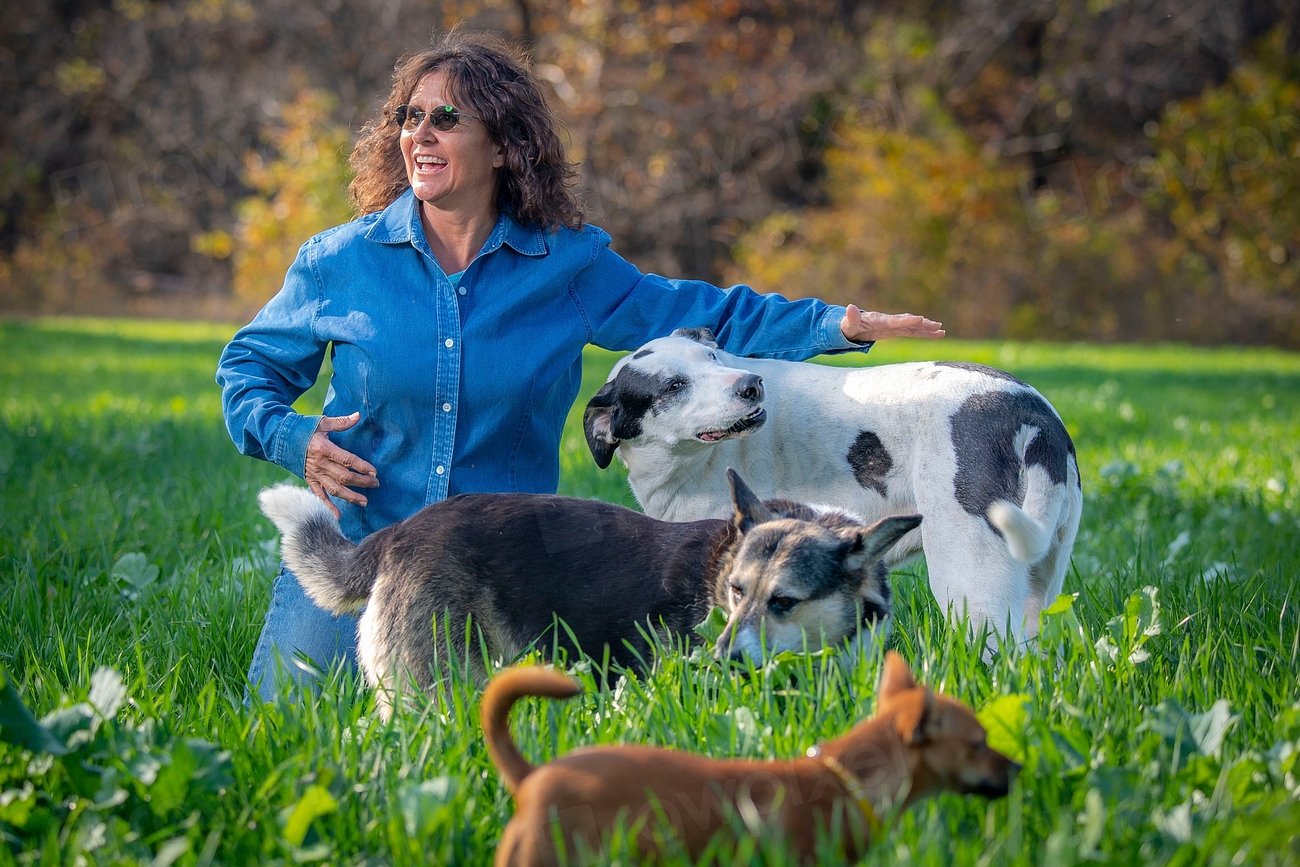Have you ever watched a senior citizen walking a dog and seen the light in their eyes? It’s not just a sweet image—it’s a powerful reminder of how dogs can transform life, especially in our golden years. Imagine waking up each morning to a wagging tail, a bundle of energy that simply can’t wait to love you. Science and stories from real people both agree: sharing your days with a dog makes aging not just easier, but richer, happier, and healthier. From lowering blood pressure to sparking laughter, the magic of canine companionship is more than fur-deep. Let’s dive into the 20 incredible benefits of having a dog in your golden years—and maybe, just maybe, you’ll find yourself smiling along the way.
1. Boosting Daily Physical Activity

Let’s face it—finding the motivation to stay active as we get older can be tricky. But bring a dog into the mix, and suddenly walks become something to look forward to. Dogs need regular exercise, which means you’re less likely to skip those daily strolls. The Centers for Disease Control and Prevention point out that older adults with dogs are more likely to meet recommended activity levels. Even on days when you feel sluggish, your furry friend’s eager face can nudge you out the door. Walking, throwing a ball, or just playing in the backyard keeps your body moving and joints limber. Over time, these little bursts of activity add up, supporting heart health, balance, and muscle strength. All thanks to the world’s cutest personal trainer.
2. Easing Loneliness
Retirement and children moving away can leave a quiet house—and sometimes, a quiet heart. But a dog fills those empty spaces with warmth and companionship. Researchers have found that older adults with dogs experience less loneliness and report a stronger sense of purpose. It’s hard to feel alone when you have a loyal friend always by your side. Whether you’re sharing a quiet cup of tea or chatting to your dog about your day, this bond can be truly life-changing. The simple act of having another living being rely on you creates a sense of connection that goes beyond words.
3. Lowering Blood Pressure

Here’s a benefit that might surprise you: owning a dog can help lower your blood pressure. Studies show that just petting a dog releases relaxation hormones, reducing stress and helping your heart work a little less hard. The American Heart Association highlights the positive impact of dog ownership on cardiovascular health. That gentle thump of your dog’s tail and their rhythmic breathing can be more soothing than any meditation app. Over time, these small moments of calm can lead to healthier blood pressure numbers, making each cuddle session a tiny act of self-care.
4. Increasing Social Opportunities

If you’ve ever walked a dog, you know they’re natural icebreakers. Suddenly, strangers become friends and neighbors stop to chat. Seniors with dogs often find it easier to make social connections, whether at the park or simply around the block. Dog ownership creates a common ground, making it easier to strike up conversations and build new friendships. Even shy or introverted individuals can find their confidence boosted by their outgoing canine companion. These little interactions add up, helping to stave off isolation and keep social skills sharp.
5. Providing Routine and Structure
After retirement, days can start to blur together. But a dog brings a sense of routine that gives each day purpose and meaning. Feeding times, walks, and play sessions create a schedule to look forward to. This structure is more than just convenient—it’s psychologically beneficial. Experts say that having a set routine helps older adults maintain a sense of control, stability, and motivation. Even on tough days, knowing your dog needs you can be enough to get you moving and engaged in daily life.
6. Reducing Stress and Anxiety
Dogs are like four-legged therapists. Just being near them can melt away stress and anxiety, thanks to the calming effect of their presence. Science tells us that interacting with dogs lowers cortisol (the stress hormone) and boosts oxytocin, the “feel-good” hormone. Seniors often face unique stressors—health issues, financial concerns, or loss—but a loving dog can offer comfort without judgment. Stroking their soft fur, hearing their gentle snores, or simply watching them play can feel like pressing a reset button on a tough day.
7. Improving Heart Health
It’s not just about feeling good—owning a dog is actually linked to living longer. Multiple studies report that dog owners have a lower risk of heart disease and are more likely to survive heart attacks. Why? It’s a mix of increased activity, lower blood pressure, and emotional support. Your dog’s playful antics and unconditional love may be doing more for your ticker than you realize. Think of each joyful bark and wag as a little boost for your heart.
8. Encouraging Mindfulness
Have you ever noticed how dogs live fully in the moment? Their joy in a walk, a treat, or a belly rub is contagious. Being around a dog can draw you back from worries about the past or future, anchoring you in the present. This natural mindfulness practice can help reduce anxiety and depression in older adults. Watching your dog sniff the flowers or chase a butterfly can remind you to savor life’s simple pleasures. It’s like having a furry mindfulness coach at your side, every single day.
9. Offering Unconditional Love
Few things in life are as pure as a dog’s love. They don’t care about wrinkles, gray hair, or past mistakes—they just love you, exactly as you are. For seniors who may feel overlooked or undervalued, this unwavering affection is a powerful source of comfort. A dog’s loyalty and joy in your presence can boost your self-esteem and bring a smile to even the gloomiest days. “My dog is always happy to see me,” one senior shared, “and that makes all the difference.”
10. Helping with Depression

Depression is a real challenge for many older adults, especially after big life changes. Dogs can help lift the fog of sadness by giving you a reason to get up and engage with the world. The daily care and companionship they provide can ease symptoms of depression and foster a sense of accomplishment. Research shows that petting a dog increases serotonin and dopamine, chemicals that help fight depression. With a dog by your side, even small achievements—like going for a short walk—can feel meaningful.
11. Supporting Cognitive Health
Staying mentally sharp is a big concern as we age. Having a dog can help keep your brain active in surprising ways. Remembering feeding times, learning new training techniques, or navigating your neighborhood on walks all stimulate your mind. Studies have found that seniors with dogs tend to score higher on cognitive assessments. The combination of routine, problem-solving, and social interactions that come with dog ownership is a workout for your brain, not just your body.
12. Enhancing Safety and Security
Even small dogs have big barks—and that can be a comfort for older adults living alone. A dog’s presence can deter would-be intruders and offer peace of mind. Many seniors report feeling safer knowing their dog will alert them to strange noises or visitors. In emergencies, some dogs have even been known to retrieve help or provide comfort until assistance arrives. This sense of security is invaluable, especially for those who may feel vulnerable at times.
13. Offering Purpose and Motivation
Sometimes, the days can feel long and empty. But a dog gives you a reason to get up, get dressed, and greet the day. The responsibility of caring for another living creature brings purpose and motivation. One senior put it simply: “My dog needs me, so I keep going.” This sense of being needed can have powerful effects on mental and emotional health, creating a positive cycle of action and reward.
14. Stimulating Laughter and Playfulness
Dogs are hilarious. Whether they’re chasing their tails, making goofy faces, or inventing new games, they bring laughter into your life. This playfulness is contagious and can help lighten the mood, even if you’re dealing with serious challenges. Laughter has been shown to reduce stress, boost immunity, and even ease pain. With a dog around, silliness becomes part of your daily routine, making your golden years a little brighter.
15. Encouraging Outdoor Adventures
Fresh air and sunshine do wonders for the soul—and dogs are always up for an adventure. Seniors with dogs are more likely to spend time outdoors, exploring parks, trails, and neighborhoods. This extra exposure to nature is linked to better mood, improved sleep, and even stronger bones. Even short walks can become little adventures, full of new sights and smells. Your dog’s curiosity can inspire you to rediscover the world around you.
16. Supporting Recovery After Loss
Grief is a heavy burden, especially after losing a spouse, friend, or family member. While nothing can replace a loved one, a dog can offer gentle comfort and a reason to keep going. Dogs are sensitive to our emotions and will often snuggle close or rest their head on your lap when you’re feeling low. This quiet presence can be incredibly healing. Many seniors find that caring for a dog helps them process loss and rebuild a sense of hope.
17. Improving Sleep Quality
Sleep can be elusive as we get older, but dogs may help you catch a few more Z’s. The calming routine of evening walks, combined with the comfort of a warm, breathing companion nearby, can promote relaxation and better sleep. Some studies suggest that pet owners fall asleep faster and feel less restless during the night. Of course, some dogs snore or hog the bed, but even these quirks are part of the cozy companionship that helps you feel safe and settled at bedtime.
18. Making Everyday Tasks More Enjoyable
Chores like gardening, tidying up, or even cooking can feel mundane—but add a dog, and suddenly there’s more fun. Dogs love to “help” with whatever you’re doing, whether it’s digging in the dirt or keeping you company in the kitchen. Their enthusiasm can make everyday tasks feel less like work and more like shared adventures. This sense of partnership turns daily routines into moments of joy and connection.
19. Fostering Intergenerational Connections
Dogs have a unique way of bringing people together, especially across generations. Grandchildren, nieces, and nephews are often eager to visit when there’s a friendly dog in the house. Walks in the park or play sessions in the backyard can create shared memories and laughter. For seniors, this means more opportunities to bond with younger family members and keep relationships strong. Dogs are the ultimate family glue, sticking everyone together with love.
20. Creating Lasting Memories
Finally, there’s the gift of memories. From silly puppy antics to quiet moments of companionship, having a dog in your golden years creates a treasure trove of stories and experiences. These moments become part of your life’s tapestry, weaving joy, love, and laughter into every day. Whether it’s the comfort of a cold nose on your hand or the pride of teaching an old dog a new trick, these memories are lasting reminders of the special bond between human and canine.





